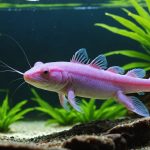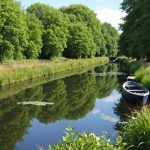Overview of Marine Conservation Awareness Programs in the UK
In the UK, marine conservation awareness programs have been designed to foster environmental stewardship, especially among children. These educational initiatives aim to instil a sense of responsibility towards marine ecosystems, crucial for the planet’s health.
Various UK programs are crafted to engage young minds, focusing on interactive learning and field trips. These initiatives prioritize hands-on experiences, allowing children to explore marine life directly. This method not only educates but also captivates attention, ensuring long-lasting impact.
Lire également : Empowering UK Citizens: Active Roles in Safeguarding Traditional Orchards and Their Unique Wildlife
The importance of marine conservation education cannot be overstated. By introducing such concepts early, children grow into environmentally conscious adults. Understanding the impacts of pollution and climate change on marine life encourages proactive involvement in conservation efforts. Schools often partner with local organisations, enhancing the program’s reach and effectiveness, often adapting digital tools to make learning accessible and engaging.
Targeting various demographics, these programs emphasize inclusiveness. Special outreach methods, such as virtual reality experiences, are designed to engage diverse audiences, including those unable to participate in person. This adaptability ensures that everyone, regardless of location or resources, can benefit from these educational initiatives.
Lire également : Enhancing Biodiversity: Effective Management Strategies for the UK’s Canal Networks to Support Vibrant Aquatic Ecosystems
Specific Educational Initiatives
Educational programs aimed at instilling marine education in children have seen significant development recently. Such initiatives are central to cultivating a future that understands and respects our oceans.
Program 1: Ocean Explorers
Ocean Explorers is a dynamic educational program designed to engage children through interactive activities that spark curiosity about marine life. With objectives focused on nurturing an appreciation for ocean ecosystems, the program enables kids to explore marine conservation in a hands-on manner. These activities not only teach but also inspire behavioral changes towards conservation, making learning enjoyable and impactful.
Program 2: Plastic Pollution Education
This initiative focuses primarily on reducing plastic waste through comprehensive learning experiences. Through strategic collaborations with schools and community organizations, children are educated on the detrimental effects of plastic in marine environments. The program has yielded notable outcomes, including increased awareness and action among young learners, showcased in numerous success stories from participating students.
Program 3: School-Based Marine Education
Incorporating marine conservation into school curricula is an effective initiative. Teachers have observed that these programs enhance students’ understanding of their environment. Educators report positive feedback from students, who exhibit increased enthusiasm and awareness regarding marine issues, thus reinforcing the value of such educational programs in schools.
Success Stories and Impact
Programs designed to engage children in marine conservation have achieved noteworthy success stories. One such example is Ocean Guardians, which effectively involves children in activities like coastal clean-ups. These hands-on experiences significantly enhance their understanding and commitment to preserving the marine environment.
Impact measurement is crucial for assessing the effectiveness of these initiatives. Programs routinely use metrics such as participant surveys and behaviour tracking to observe changes in awareness. For instance, a post-program survey showed an 80% increase in children’s understanding of marine issues, demonstrating the program’s success in education and engagement.
Furthermore, these initiatives lead to remarkable long-term benefits. Not only do the children involved become more environmentally conscious, but their influence extends to their families and communities. As they grow, their cumulative impact contributes to developing a generation of environmental engagement advocates. Long-term studies have indicated that communities involved in such programs experience reduced littering and increased participation in local conservation efforts, showcasing tangible outcomes.
In summary, the blend of engaging activities, rigorous impact measurement, and observable long-term benefits validate the effectiveness of programs aimed at instilling a sense of responsibility and environmental stewardship in young minds.
Tips for Parents and Educators
Engaging young minds in marine conservation can be both rewarding and essential. For parents looking to nurture this interest at home, creating an environment that supports conservation education is key. Introduce your child to the wonders of the ocean through books and documentaries focusing on marine life. Use daily activities, like grocery shopping, to discuss the importance of choosing sustainable seafood.
Educator resources play a crucial role in this educational journey. Teachers can access a plethora of online materials, including lesson plans that integrate marine topics, interactive games, and virtual field trips to aquariums or marine reserves. These resources help bring the exciting world of ocean conservation into the classroom, making learning both interactive and impactful.
Fostering a sense of community involvement enhances these efforts. Organizing clean-up drives at local beaches not only instills a sense of responsibility in young minds but also actively contributes to marine preservation. Parents and educators can collaborate to establish student-led projects, focusing on topics like reducing ocean waste or advocating for local wildlife protection. Such initiatives enable children to understand their power in influencing a positive environmental change and provide a practical dimension to their marine conservation education.
Additional Resources and Organizations
To deepen understanding of marine conservation, numerous resources and marine organizations offer educational content and opportunities.
Recommended Books and Materials
For young readers, several educational books introduce marine conservation’s importance. Titles like “Ocean: Secrets of the Deep” and “World of Oceans” are well-regarded. Additionally, online platforms such as the Marine Life Encyclopedia provide interactive educational experiences. These resources offer insightful knowledge about marine life and the impact of human activities on oceans.
Relevant Organizations to Follow
Numerous organizations focus on marine education for children, offering invaluable perspectives. The Marine Conservation Society and the Oceanic Preservation Society stand out as key influencers, providing resources for both schools and parents. Partnering with these organizations can enhance educational programs, nurturing a generation aware of oceanic ecosystems.
Events and Volunteer Opportunities
Local events celebrating marine conservation, such as beach clean-ups or marine life festivals, offer practical engagement. They’re excellent for families eager to contribute to preserving oceans. Volunteer programs enable children to actively participate and learn, instilling a sense of responsibility and connection to marine environments. Engage with community boards and organization websites for upcoming local opportunities.










